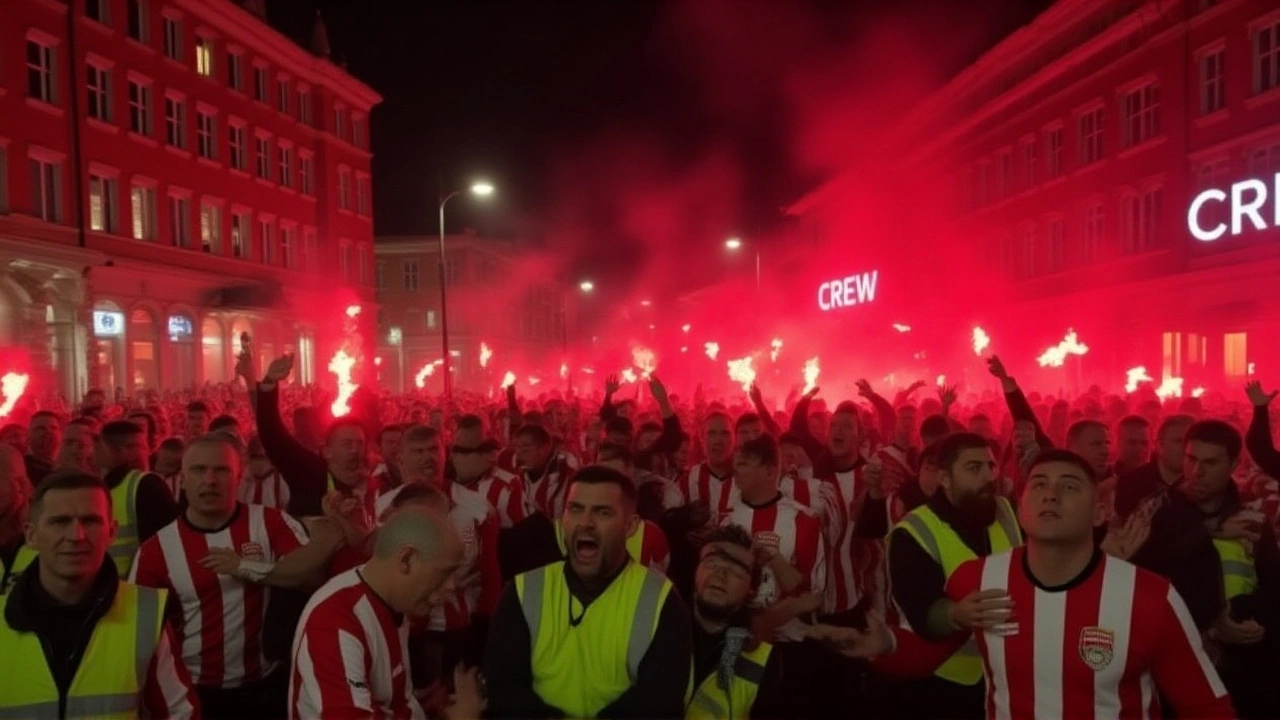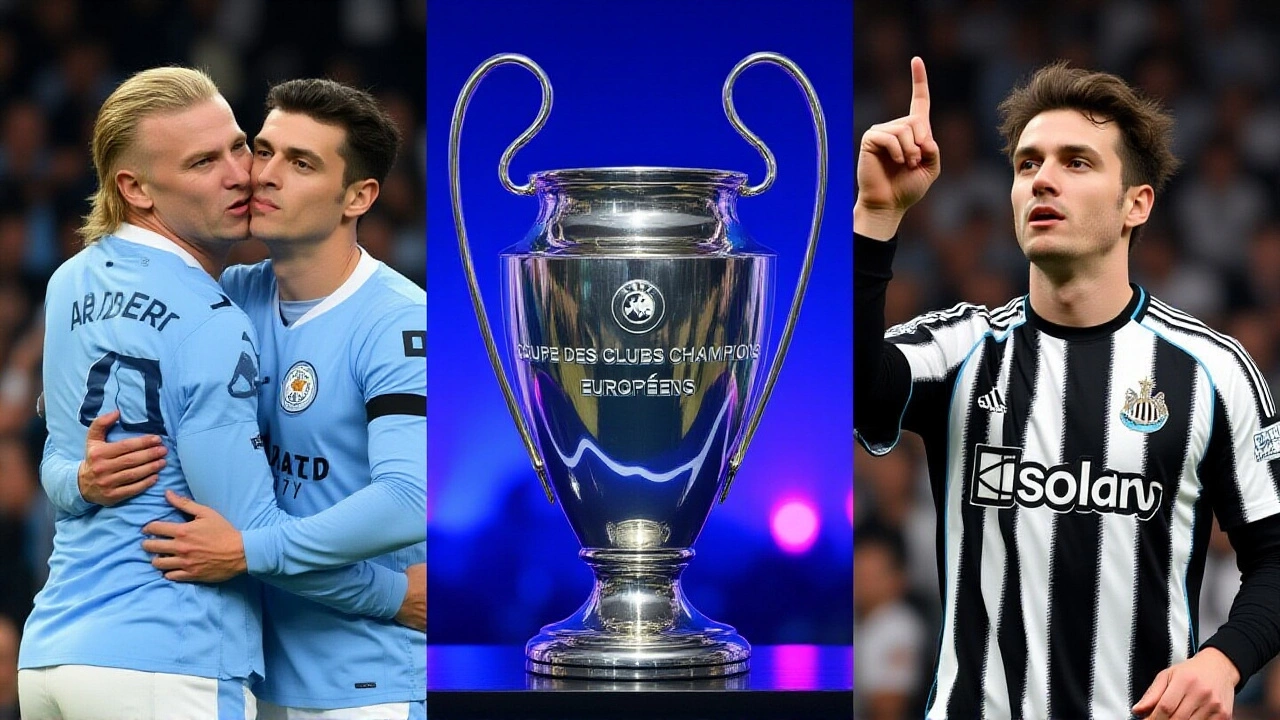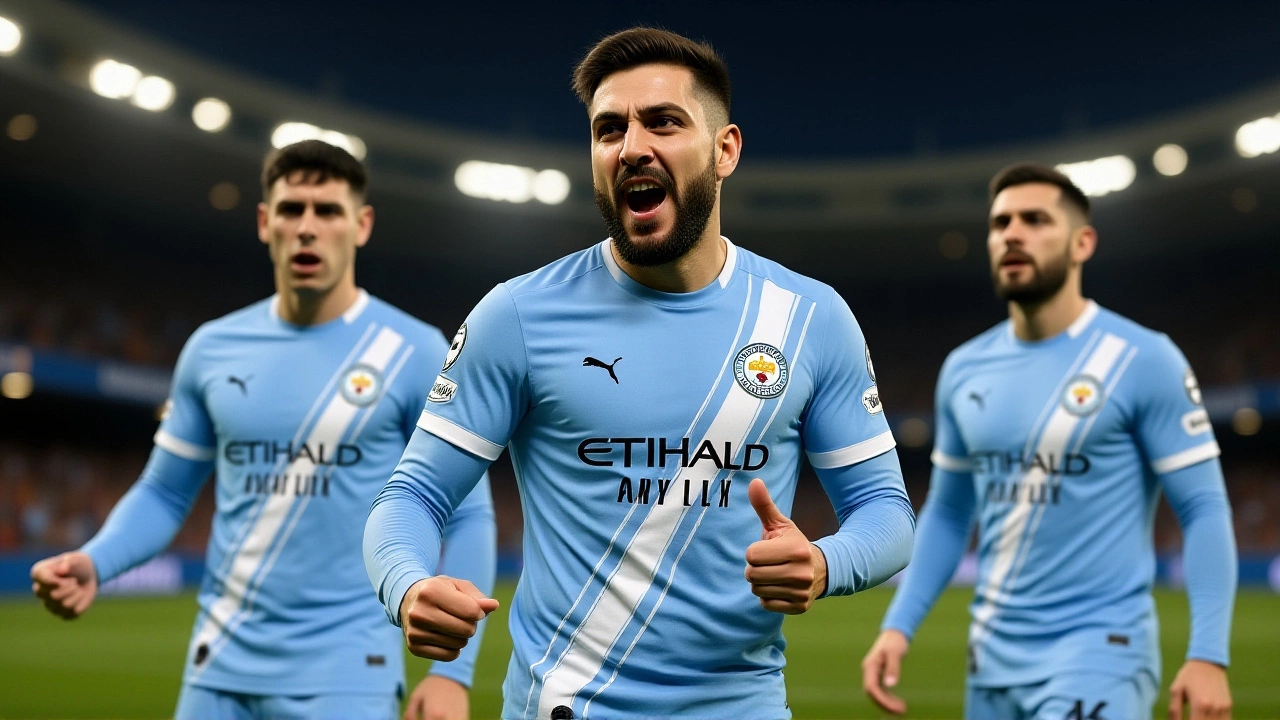On Wednesday, November 26, 2025, the 2025/26 UEFA Champions League entered its pivotal fifth matchday, with seven high-stakes fixtures shaking up the new 36-team league phase. The most anticipated clash? Arsenal hosting Bayern Munich at Emirates Stadium in London — a showdown that could redefine the race for top-eight seeding. With Arsenal listed at +115 and an over/under of 2.5 goals, fans aren’t just watching a game; they’re witnessing the evolution of European football’s most radical format change in decades.
The New Format: No More Groups, Just a Giant League
Forget the old group stage. Since September 16, 2025, the 2025/26 UEFA Champions League has operated under a single-table league system — 36 teams, eight opponents each, home and away. No more predictable group winners and runners-up. Instead, teams climb a ladder based on points, with the top eight earning automatic byes to the round of 16, and teams ranked 9th through 24th battling in a two-legged playoff. This format, confirmed by UEFA’s official documentation, is designed to maximize competitive balance and TV revenue — but it’s also created chaos. After four matchdays, even giants like Real Madrid and Manchester City have dropped points. City lost 0-2 to Bayer Leverkusen on Matchday 4. Real Madrid? They’re clinging to a 1-0 win over Liverpool in Matchday 1, but now face a tough trip to Piraeus to play Olympiacos.
Matchday 5: The Key Fixtures and Odds
At 12:45 PM UTC, F.C. København welcomed Kairat Almaty to Parken Stadium in Copenhagen. København, coming off a 4-0 thrashing by Tottenham Hotspur on Matchday 4, needed points badly. Kairat, the Kazakh underdogs, had already lost 2-1 to Inter Milan earlier in the phase. Betting markets had København as heavy favorites at -360, but the atmosphere was tense — the crowd remembered how PSV Eindhoven had drawn 1-1 with Olympiacos just days before, proving no result is safe.
Meanwhile, in Cyprus, Pafos took on AS Monaco at Alphamega Stadium. Monaco, favored at -180, needed a win to stay in the top 16 race. Pafos, the Cypriot minnows, had stunned Villarreal 1-0 on Matchday 2 — a result that still echoes in the corridors of European football.
At 3:00 PM UTC, the real drama began. Arsenal vs Bayern Munich wasn’t just a clash of titans — it was a statement game. Arsenal, unbeaten at home this phase, had drawn 4-4 with Borussia Dortmund on Matchday 1, then won three straight. Bayern, meanwhile, had lost to Paris Saint-Germain 2-1 and were desperate to prove they weren’t slipping. The Emirates was electric. Fans held up banners: “No More Group Stage. No More Excuses.”
Elsewhere, Atlético Madrid hosted Inter Milan at the Riyadh Air Metropolitano Stadium in Madrid. Atlético, +135 on the moneyline, had been defensively solid but offensively sluggish. Inter, who crushed Kairat 2-1, were looking to climb into the top eight. In Frankfurt, Eintracht Frankfurt faced Atalanta at Deutsche Bank Park, with Atalanta favored despite losing their last two away games. And at Anfield, Liverpool — at -400 — faced PSV Eindhoven, a team they’d already beaten 1-0 in Matchday 1. The over/under? A staggering 3.5 goals. It wasn’t just a game — it was a spectacle.

Why This Format Matters
This new league phase isn’t just a tweak — it’s a revolution. Traditionalists moan about the loss of group-stage drama. But the data tells another story. Since the format debuted, 82% of matches have had direct implications on top-eight qualification, compared to just 47% under the old group system. Teams like Kairat Almaty and Pafos are no longer just “minnows.” They’re legitimate spoilers. Borussia Dortmund lost 0-2 to Bayer Leverkusen on Matchday 4, and suddenly, the German giants are flirting with the playoff zone. Meanwhile, Chelsea, who crushed Barcelona 3-0 on Matchday 4, are now in the top five — a far cry from their 2024 collapse.
The format also levels the financial playing field. Smaller clubs now earn more from TV revenue based on performance, not just participation. F.C. København made more from Matchday 1 than they did from their entire 2023-24 domestic campaign. That’s not just progress — it’s transformation.
What’s Next: The Final Push
Matchday 6 — scheduled for December 9-10, 2025 — will be the final test before the knockout draw. Kairat Almaty will host Olympiacos at 16:30 UTC on December 9. Bayern Munich takes on Sporting CP in the evening. And Liverpool will face Inter Milan in a potential top-eight decider.
By December 10, the top eight will be locked in. The rest? They’ll fight for survival in the playoffs. Then, in May 2026, the final will be held — likely at a venue yet to be announced — but one thing’s certain: the winner won’t just be the best team in Europe. They’ll be the most consistent over 36 games. And that’s new.

Historical Context: The Road to This Change
This format didn’t emerge overnight. UEFA’s coefficient rankings — which determine how many teams each nation qualifies — have long favored Western Europe. Turkey, ranked 9th with 38.600 points, and the Czech Republic at 10th with 36.050, are now in the mix. Cyprus, though unranked in the top 10, has seen Pafos and Villarreal battle fiercely. Even Armenia (36th) and Latvia (37th) have teams in the competition — a sign of how far UEFA has expanded its reach.
Remember when Barcelona and Real Madrid dominated the group stage? Now, they’re just two of 36. And that’s the point.
Frequently Asked Questions
How does the new 36-team league phase differ from the old group stage?
Instead of eight groups of four, all 36 teams play eight matches — four home, four away — against randomly drawn opponents. The top eight qualify directly for the round of 16; teams ranked 9th to 24th enter a two-legged playoff. This eliminates the predictability of group winners and increases competitive stakes across all fixtures.
Why is Arsenal vs Bayern Munich such a big game this matchday?
Arsenal is unbeaten at home and sits in the top five, while Bayern is struggling to find consistency after losses to PSG and Leverkusen. A win for Arsenal would solidify their top-eight position; a Bayern victory could reignite their title hopes. It’s a direct clash between two clubs vying for seeding advantages in the knockout rounds.
Which underdog teams have made the biggest impact so far?
Pafos stunned Villarreal 1-0, and Kairat Almaty held Inter to a 2-1 loss. Even Union Saint-Gilloise, a Belgian side, beat PSV 3-1 on Matchday 1. These results show the format rewards resilience over reputation.
When does the league phase end, and what comes next?
The league phase concludes on December 10, 2025. The top eight advance directly to the round of 16. Teams ranked 9th to 24th play two-legged playoffs on February 11-12 and February 18-19, 2026. The winners join the top eight in the knockout stage, leading to the final on May 30, 2026.
How are teams selected for the Champions League this season?
82 teams from 53 UEFA member associations entered qualifying rounds from July to August 2025. The 36 teams in the league phase are determined by domestic league finishes, UEFA coefficients, and qualifying results. Nations like England, Spain, and Germany get four spots; smaller nations like Cyprus or Kazakhstan get one, but their champions still get a shot.
What’s the financial impact of this new format on smaller clubs?
Smaller clubs now earn significantly more based on performance, not just participation. F.C. København earned more from Matchday 1 than their entire 2023-24 domestic season. TV revenue is distributed more evenly, and even a single win can mean millions — turning underdogs into financial beneficiaries of the new system.
